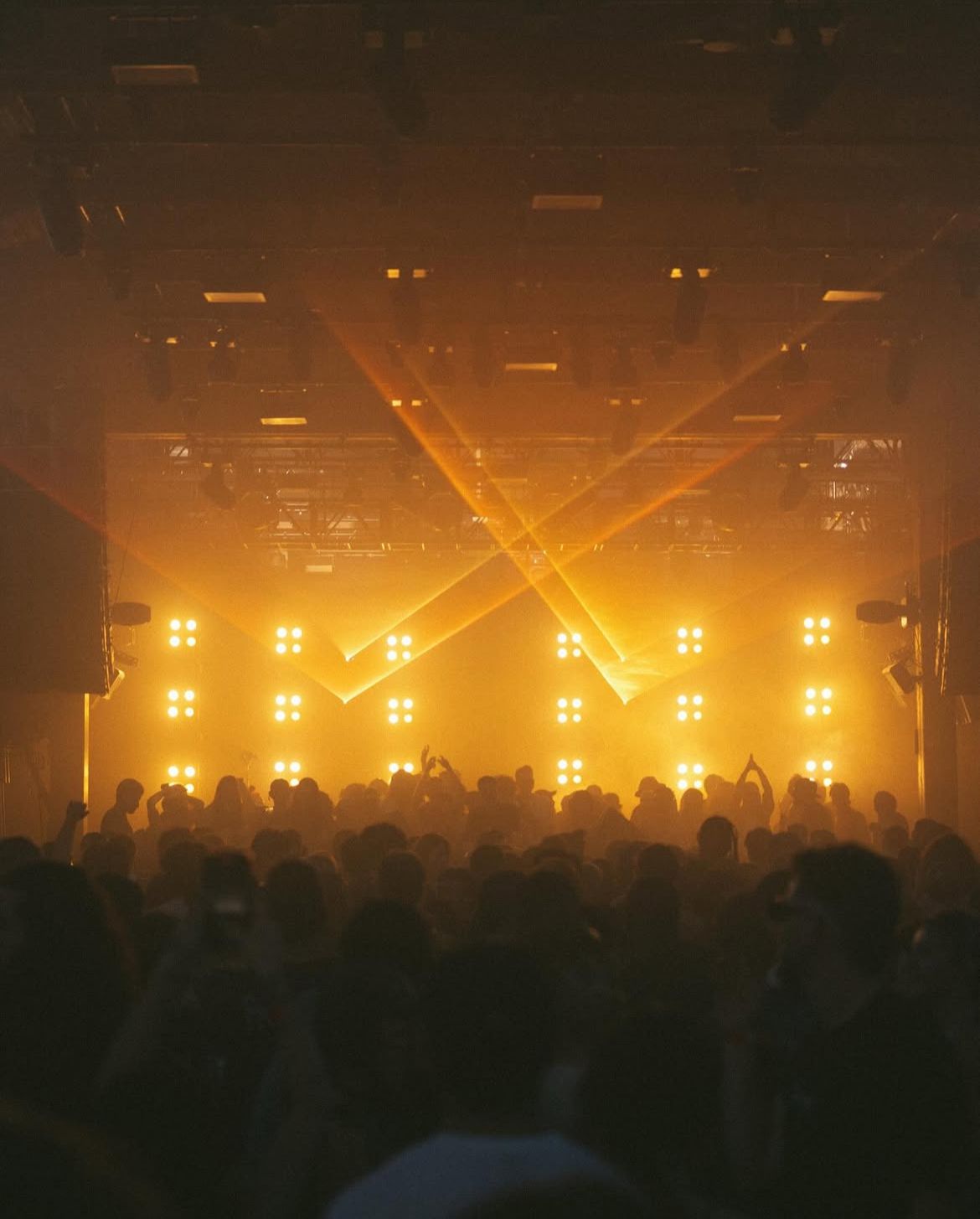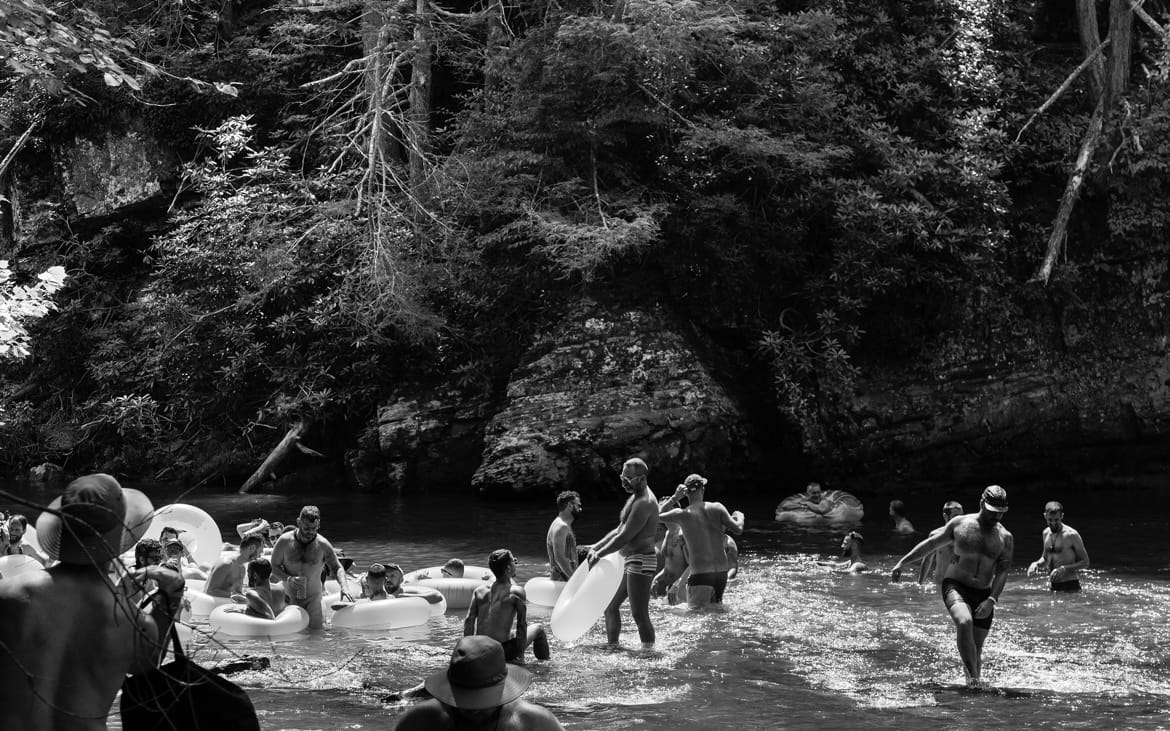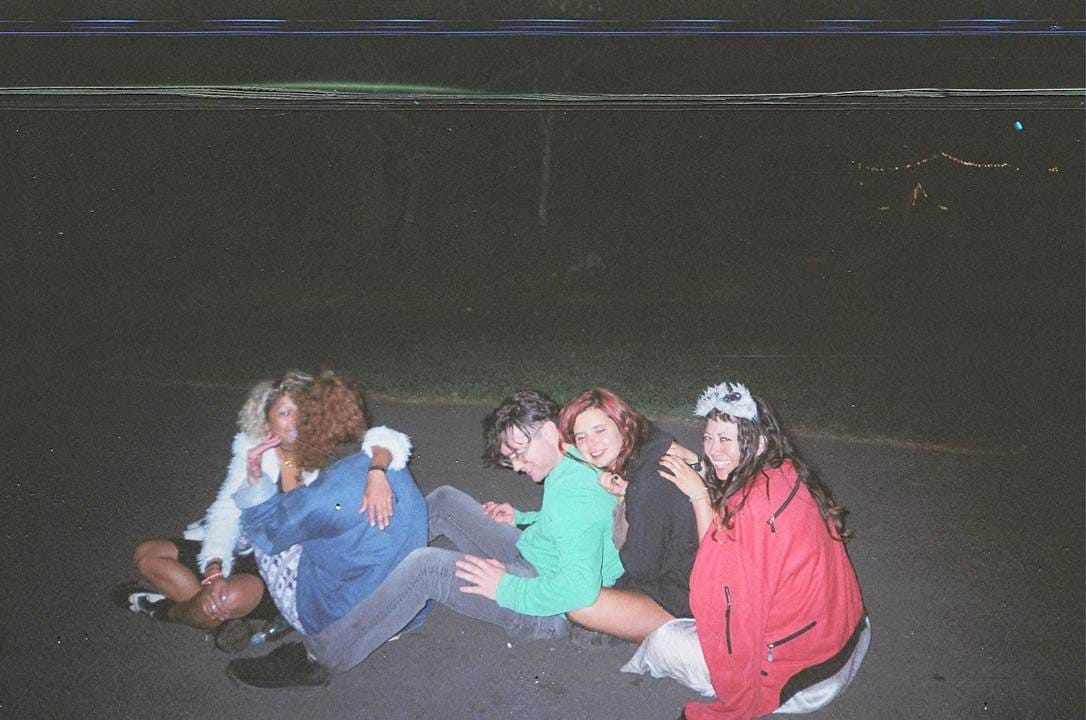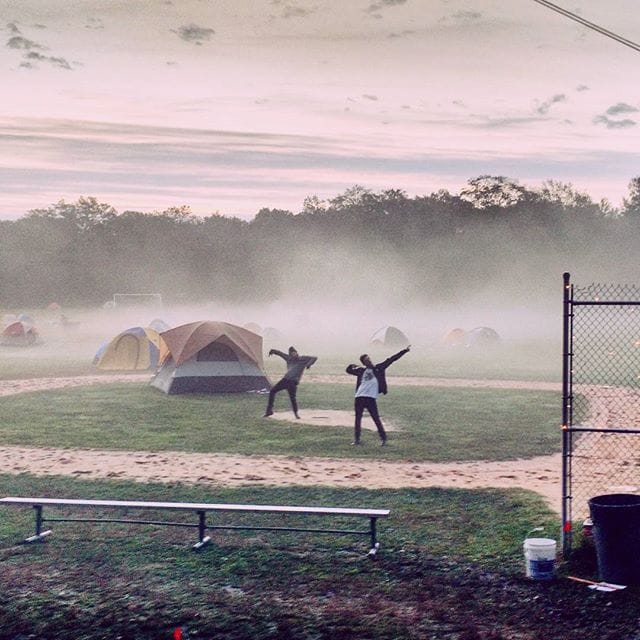- Now Frolic
- Posts
- Noise, Light, and the Price of Belonging
Noise, Light, and the Price of Belonging
What Festivals Promise, What They Actually Give, and Why We Keep Showing Up

This article is part of a special Now Frolic series on festivals.
Summer is finally here, and that means festivals across the country. Festivals come in many forms. Some are a rite of passage, some are rooted in civic tradition, and some are held for the simple pleasure of listening to our favorite tunes.
Festival is also an adjective describing an atmosphere of unrestrained joy. Here, Now Frolic’s columnists have created something special – five stories of festivals. Over these five days, read perspectives on the role of festivals in our society, and spread an atmosphere of joy by sharing these stories with your friends and family. Happy Summer!
The only festival I’ve ever been to was Warped Tour, and I was thirteen. I remember heat coming off the blacktop in waves, kids passed out from dehydration, and the faint taste of metal in the air from all the chain-link fencing. It felt like chaos with a wristband, but there was something magnetic about it, too — like stepping into a world stitched together by sweat and noise.
Since then, I’ve kept my distance. Not because I lost interest, but because I started to notice the machinery under the glitter. Festivals, especially the ones that light up the night, have become less about music or community and more about selling a feeling to people who are desperate for it. They’re expensive, emotionally-charged vending machines. Swipe your card, get your euphoria.
Still, there are precious few festivals that manage to cut through that noise. The ones that don’t feel like stage productions with a merch tent. The ones where the night gets weird in the best possible way and you lose your sense of time for a while. These days, those are rare. Most nightlife festivals ride the same tired formula: take a subculture, bottle it, inflate the price, and sell it to people afraid of missing out.

Honcho Campout is a queer gathering in nature (Resident Advisor)
Joy becomes a commodity – that’s the real trick. These places promise release, but what they often deliver is a sanitized, hyper-managed version of chaos. It's a curated wildness, complete with brand partnerships and bathroom attendants.
You see it right away with the ticketing. Tiers, waitlists, fake scarcity. Low availability warnings and clocks ticking down. This kind of propaganda moves the event toward a psychological campaign. Don’t go, and you’re not just missing a party — you're missing the moment. Suddenly, you're behind on life.
Once you’re in, the meter keeps running. Ten bucks for a bottle of water. VIP areas with their own ecosystems. Immersive experiences you can take pleasure in, but only if you pay extra. It’s a city built for consumption, with walls you don’t always see until you try to step outside of them.
Sure, these festivals are logistical beasts. There are workers who make it all happen — security, sound techs, medics, people on the ground who keep the place from burning down. Too often, the profit margins outgrow the purpose. What should feel communal ends up feeling transactional.
Even under the weight of all this structure, people still find moments of something real, but that doesn’t mean we shouldn’t be asking who built the scaffolding and why we’re so willing to climb it every summer.
The strange part is that people still manage to have fun. They dance, they connect, they let go. That’s the real mind-bender — even under the weight of all this structure, people still find moments of something real, but that doesn’t mean we shouldn’t be asking who built the scaffolding and why we’re so willing to climb it every summer.

At the first Sustain-Release festival (Photo Provided)
Every now and then, something breaks through the noise — a festival that doesn’t feel like it was built to feed a content machine in space that doesn’t need to sell you anything beyond a few days of being fully present. These are the outliers — smaller, stranger, more intentional. They feel different because the people behind them understand what truly makes a community. They’re part of one.
Wire Festival at the Knockdown Center in Queens pulls this off with grit and clarity. It’s a sprawling weekend of music and visuals in a venue that still feels like a place rather than a set. No one’s pretending it’s glamorous. The floors are concrete, the rooms echo, and the light has a way of catching dust in the air. You’re not there to be impressed — you’re there to lose yourself in the sound, in the crowd, in something that doesn't need a headliner to feel legitimate.
Then there’s Sustain-Release, a four-day camping rave tucked into the woods of upstate New York curated by Aurora Halal. It's a retreat, if your idea of retreat includes warehouse-level techno, fog machines in the forest, and a crowd that genuinely understands how to take care of each other. You bring your own tent, your own food, and your own weathered boots. There’s no cell signal, no distractions, no tiered access. Just a dance floor cut into the wilderness, running deep into the night, surrounded by people who aren't waiting for the drop to start feeling something.
Honcho Campout carries that same energy but queerer, scrappier, and louder. It’s a weekend in rural Pennsylvania where gender melts, outfits blur, and joy spills out in every direction. The music matters, sure — the DJs are sharp and the sound is dialed in — but the real draw is the space itself. This space doesn’t demand assimilation or silence or self-policing. It’s sweaty, sometimes chaotic, and always deeply intimate. There are no stages, just a sense that you’re somewhere you’re allowed to exist without explanation.

Genuine connections happening at Honcho (Resident Advisor)
These festivals don’t operate like product launches. They don’t ask you to prove that you were there. They’re built around trust, rhythm, and shared effort. That doesn’t make them pure — money still changes hands, and even the most DIY setup has a budget. What they do offer is something close to honesty, an atmosphere that doesn’t feel extracted or designed to scale.
They don’t chase the illusion of utopia. They just leave enough room for one to briefly emerge.
Even the best versions of these festivals come with a price, and not just the ticket. For all their talk of community, these gatherings still require time off, money, gear, and a certain social literacy. Knowing how to show up, how to move within the space, how to blend in without disappearing — none of that is free.
Knowing how to show up, how to move within the space, how to blend in without disappearing — none of that is free.
There’s labor everywhere, and most of it is invisible. Someone built the stage. Someone dug the trench for power cables, rigged the lights, ran the door, or swept the dance floor at sunrise. In more DIY spaces, a lot of that is unpaid or traded for a wristband and a meal. In bigger ones, it’s outsourced and under-compensated. The vibe is effortless, but the work behind it never is.
Then there’s the emotional toll. These spaces can feel like portals — temporary worlds where everything glows and everyone’s beautiful — but re-entry can be brutal. Monday hits differently when you’ve just spent three nights in a synthetic utopia. There’s a hangover even if you didn’t drink. A kind of social whiplash. You come back craving a feeling that doesn’t scale down to daily life.

After going all in, it's hard to come back (Photo Provided)
For many, that sense of freedom isn’t accessible at all. These festivals talk about openness, but entry often comes with unspoken terms. The right friends. The right clothes. The right look. Even in queer spaces, even in left-of-center scenes, there’s a quiet hierarchy. Sometimes it’s economic. Sometimes it’s aesthetic. Sometimes it’s just about who knows who. It’s not always intentional, but it’s there — and it shapes who feels like they belong before the music even starts.
The thing is, it’s easy to pretend that these places exist outside of the world they come from, but they don’t. They carry the same tensions, the same blind spots. The same pressure to be seen, to belong, to perform easily. Even when the music’s good and the crowd is generous, that tension hums underneath.
That doesn’t mean it’s not worth it. It does mean we shouldn’t look away from what it takes to make it feel like it is.
For all the bullshit, people still go. They save up, make the drive, and sleep in tents or wait in Ubers at 4 a.m., soaked in sweat and someone else’s beer. That says something, and it’s more about the need than the appeal.

The Wire crowd thrives into the night (Photo Provided)
People aren’t idiots. Most know they’re getting upsold, that the “community” being advertised might just be a brand campaign, but something deeper pulls them in. It’s that rare feeling of being in a place where nothing else matters for a few hours, where the world narrows down to a dance floor and a shared bass line. For some people, that’s the only time they feel present. For others, it’s the only time they feel seen.
There’s something about the body in motion, surrounded by strangers who all agreed to be there for the same reason. It doesn’t fix anything — and it doesn’t last — but it’s real while it’s happening. That kind of immediacy is hard to come by in a culture built on distraction.
That kind of immediacy is hard to come by in a culture built on distraction.
Festivals, even the overly produced ones, create a strange kind of permission. To wear less. To say more. To touch, to disappear, to reappear somewhere else hours later. For people who feel boxed in the rest of the year — by gender, by work, by expectation — that permission means everything.

Feeling free at Sustain-Release (Photo Provided)
Genuine connections are formed. People meet at these events and stay friends for life. They fall in love, fight, lose each other in the crowd and find each other again in the morning. These moments might happen under a sponsored banner, but they’re no less true because of it.
The hard part is holding both truths. These festivals can be exploitative and essential. Manufactured and magical. A place to spend too much money and still walk away feeling like something in you cracked open just enough to let the light in.
Festivals and nightlife sit at a strange intersection. They promise freedom, and sometimes they deliver it, even if just for a few hours. More often than not, what’s sold as liberation comes with wristbands, brand deals, and curated chaos. The experience feels like it belongs to you, but it was engineered long before you got there.
Still, people keep showing up. Not because they’re naive, but because there’s something in these spaces — even the messy, overbuilt ones — that scratches a deep itch. The need to gather. To move. To be part of something that doesn’t ask for explanation. Sometimes joy is elusive, and even the rented version is better than none at all.
The festivals that get closest to something honest are the ones that don’t pretend to be perfect. The ones that make room for weirdness, for flaws, and for people who don’t fit neatly into the marketing deck. They’re temporary rearrangements of reality rather than a complete escape from it. Small, loud experiments in what it feels like to be free together, if only for a weekend.
Maybe that’s worth showing up for. Maybe it’s worth building something better from it.
Embedded in Brooklyn nightlife and the New York club scene, Alexandra Clear writes about Nightlife for Now Frolic.